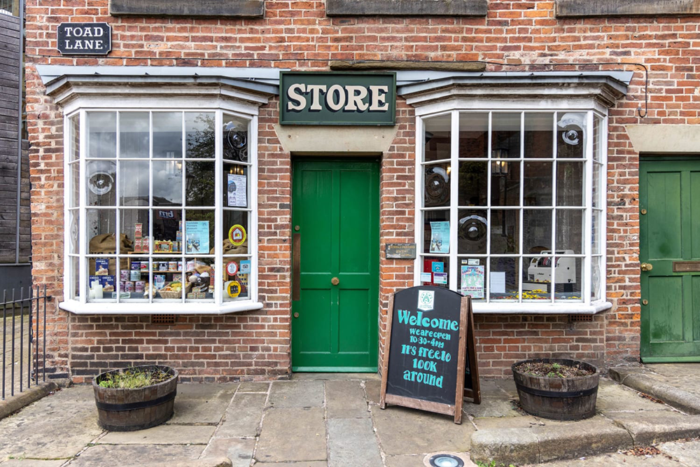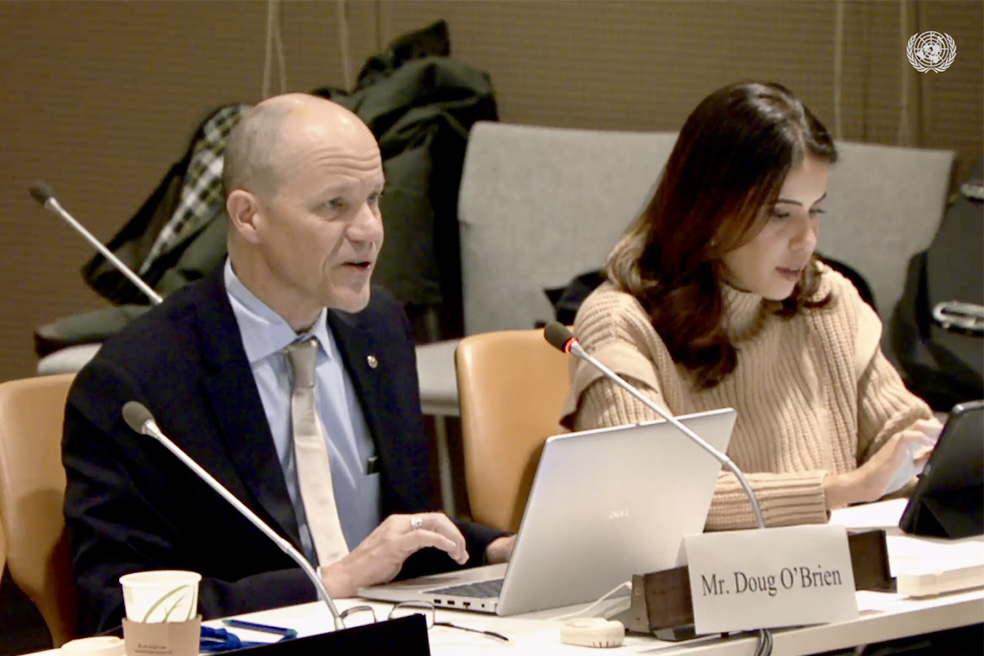Launched in July of 2000, the COOPR8 Letter is authored by three members of the Cooperative Hall of Fame: Mike Mercer, Martin Lowery and Maurice Smith. The newsletter brings attention to the strategic benefits of embracing cooperative identity in practice. It also seeks to encourage U.S. co-ops to collaborate across economic sectors in order to advance fairness and inclusiveness in the economy. In the latest installment below, Mike urges co-op leaders not to settle for probable outcomes, but to exercise Rochdale-inspired radical thinking. If you’d like to receive the COOPR8 Letter, email us at info@ncba.coop and we’ll put you in touch with Mike.

Imagine yourself in central England. It’s the mid-1800s. Like most, you are not clergy, nor of noble lineage. Eating requires work. The options that most like you can see are few. You could work in the fields from dawn to dusk. Or you could work in the new factories, trying to keep up with dangerous machines for twelve hours a day. Maybe you could work in the mines or on the docks or in the hold of a creaky ship. Backbreaking work no matter the choice.
Luckily, your mother was a weaver. She taught you how to weave cloth. Somehow, you and a few other weavers imagined an alternative approach to work. You pledge yourselves to each other and agree to organize your own business. There are no government laws to comply with. There are no standard bylaws to consult. There is no wealthy sponsor to get you started. At night, you and your fellow cooperators draw up a set of governing principles. More than a century later, people will come to the Toad Lane store in Rochdale to pay homage to the words that you wrote. You had strategic foresight.
You probably weren’t thinking about a more just and fair economy. A couple of cats named Marx and Engels were doing that. They were looking for alternatives to the free-market ideas that were born in the prior century, in part by a fellow from Scotland named Adam Smith. The only poverty you were trying to eliminate was your own, most likely. The vision that the cooperative business model (which you were inventing) could become an economic alternative to monarchy, capitalism, and communism was not your endgame. You just wanted better working conditions and better remuneration for your effort.
But your mid-1800s self did envision something different (and better) than the other labor realities that you faced. You looked beyond the probable to contemplate a new reality. Not just for yourself, but also for your comrades in transformation. You are determined not to be dependent on benefactors. You would collectively help yourselves. You would probably not become wealthy. Certainly not by the standards of 21st century co-op leaders. But you had a chance to become better off. You would almost certainly enjoy your work. Maybe you could live a few years longer than the field workers, factory workers and miners. And you would have a chance to contribute to the well-being of your fellow cooperators. Dignity, inclusion, and reciprocity—words that you would not know, but feelings that you would experience.
Wake up! It’s 2025.
You’re providing leadership for a sophisticated cooperative business. Your co-op is competing with many other firms (possibly including other co-ops) in the sector where you operate. Technology is literally changing the meaning of excellent service and competitive cost structure on a near-continuous basis. You work for a tenured board of directors or a long-serving boss. You’re on a treadmill, a cycle. From one board meeting to the next. From one annual meeting to the next. Looking ahead usually means next year’s goals and budgets. Predicting things beyond that is a fool’s errand. Or so it seems.
The more things change, the more they look the same. Your co-op delivers electricity, food, discount buying, financial services… whatever. Vision is often confined to the industry where you ply your trade. You end up competing on some combination of price, convenience, service, and brand identity. You know that competing on those things is precarious strategy. Disruption happens all the time. Your training has taught you that your cooperative structure should make you different/better in the eyes of your members (and prospective members). Your promotional content emphasizes that the co-op cares about the member. But you feel compelled to fall back on price, convenience, and service to win business. Vision largely contemplates getting to scale—if necessary, via consolidation. The competitive treadmill.
Could “price, convenience, and service” be the strategy equivalent of the “field, factory, and mine” options facing your 1840s self in central England? Choices that lead to backbreaking work (relentless pursuit of operational efficiency) and short lifespan (as in consolidation to reach scale). Is there a 2025 way to define a new reality for the future? Your co-op could collaborate with other co-ops from multiple economic sectors to operate apart from the frustrating choices of the present competitive rat race? This is essentially what those weavers did in the 1800s. It might be what we could do today.
Looking beyond today’s realities to contemplate another is not easy. Most won’t. Most will charge up the competitive hills of price, convenience, and service—the pragmatic strategy choices of our time. The idea of building another hill sounds absurd to tactical warriors. But, like the weavers, suppose a group of co-ops came together to forge a new economic way of things? Probably starting in a small community, they would present themselves to consumers, workers, and civic leaders as a unified group, pledged openly to the well-being of those being served. These fair economy pioneers would align themselves with other local organizations that put the interests of people ahead of profit. In time, profits would recirculate throughout the community. Citizens would choose to patronize the local cooperative system—the co-ops would provide mutual incentives to do so.
Success could be emulated in other communities. New cooperative business entities would be organized, supported by the local ecosystems. Co-ops would come to exist in many facets of community economic life. A town of 25,000 people could have dozens of co-ops, all working in concert to help folks do better. Eventually local could become regional. One day, a reporter would write about the growing movement of local/regional cooperative systems revitalizing communities and redefining American commerce. But all of this would be possible because a small group of co-op leaders somewhere decided to change the paradigm, to build another reality. They would not have started out to change the world—just to define a new/better way for co-ops to approach the future together in their town. They would have looked beyond probable—the competitive hills of price/convenience/service in their narrow economic sector.
A new collaborative reality could also be built at scale from the start. Suppose that a number of the largest co-ops came to believe that AI personal assistants (agents) will threaten their core member relationships within the next 3-5 years. Credit unions have learned how hard it is to dislodge bank customers from their checking accounts because of the numerous hard-to-change transaction settlements. Imagine the relationship ‘stickiness’ that will come when AI personal assistants ‘learn’ and ‘remember’ virtually everything about a prospective member—individuals or small businesses. What if 50 of the top 200 co-ops determined to work with Open AI to build a cross-sector cooperative AI assistant that would be available to all co-op members. Co-ops would get accelerated access to technology and distribution capabilities; Open AI would have access to a trustable personal assistant brand and new links to tens of millions. Co-ops could finally achieve heightened awareness through their AI assistants. People helping people would have new meaning. Most ‘look beyond probable’ movements don’t start at scale, but there’s no law of nature that says it’s impossible.
So, if you wanted to look beyond probable, where could you start? Two places come to mind. First, look deeply into your community. Learn about the other co-ops that are already there. Build relationships with their leaders. Talk about what might be possible by sharing insights and working together. Together, extend the gaze to other people-centered organizations: civic, academic, health, social services, etc. Contemplate how all could work in concert to build a new paradigm for local commerce. This is not a spectator sport—you’ll have to lead.
Second (perhaps the first chronological step), you’ll want to expose yourself to the possibilities. That begins with understanding the circumstances and issues of the broader cooperative system. This includes the other economic sectors in the U.S. and the other cooperative systems internationally. For example, rural electric co-ops and credit unions have tens of millions of overlapping members but they know very little about each other and how they could leverage value by working together. In Italy, co-ops have collaborated to start and support social co-ops, helping people with childcare, eldercare, care for people with disabilities, etc.
A great way to get this sort of exposure quickly would be to attend NCBA’s annul Cooperative IMPACT Conference held in Washington, DC in early October. Co-ops from all sectors and many countries will be in attendance. Someone from your organization should consider becoming a liaison to the broader co-op world by participating and engaging.
Your 1840s self didn’t have much time to look beyond the probable courses of life. It is likely no different for your 2025 self, leading a contemporary co-op in a highly competitive world. But the probable paths forward promise a lot of backbreaking work. Building a new reality is hard work too. But it might lead to something better—if not for you, for the future generations of co-op leaders who will follow. Mostly, it could lead to better value for the people that co-ops strive to serve.


